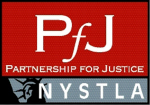 As with any negotiation, mediations typically start out with the parties addressing preliminary matters and trying to set the ground rules for negotiation, or trying to agree on how to agree. Sometimes these preliminary matters seem a little frivolous, dealing more with matters of style than substance, as the parties come to the table, jockeying for position. One of my favorite examples of this is the famous Vietnam Peace Conference that began in 1968 but stalled for many months as the parties haggled about the shape of the negotiating table. The North Vietnamese favored a round table whereas the South Vietnamese insisted on a rectangular table.
As with any negotiation, mediations typically start out with the parties addressing preliminary matters and trying to set the ground rules for negotiation, or trying to agree on how to agree. Sometimes these preliminary matters seem a little frivolous, dealing more with matters of style than substance, as the parties come to the table, jockeying for position. One of my favorite examples of this is the famous Vietnam Peace Conference that began in 1968 but stalled for many months as the parties haggled about the shape of the negotiating table. The North Vietnamese favored a round table whereas the South Vietnamese insisted on a rectangular table.
Unimportant as such preliminary matters may seem, they can actually make a big difference in the ultimate outcome of a mediation. Not that we have a strong preference for using either a round or rectangular table but after picking a mediator, it’s important to pay attention to a few other details that will also be included in your mediation agreement, as it establishes the framework for all that follows.
When it comes to personal injury litigation, one area where the understanding between the parties can make a real difference regards the potential use of structured settlements in framing the terms of an eventual settlement. Being structured settlement consultants this of course is of particular concern to us – but in our experience it can also make a real difference both to the plaintiff and plaintiff’s counsel. (Click here to read how structured settlements can help save on taxes with your next legal fee.)
The problem arises because defendants, at the behest of their insurance providers, will often attempt to force requirements in the mediation agreement that will effectively limit the plaintiffs’ ability to design a settlement plan with the use of structured settlement that fits best for the plaintiff’s individual needs. The limitations that insurers typically try to impose on the plaintiffs concern which Life Companies can be used to write a tax free qualified structured annuity as well as being forced to think they must only use the defense’s structure broker/advisor in order to design, arrange and negotiate the annuity. While it makes sense to limit the choice of available Life Companies to only top-rated insurance companies, it is important to review the list of underwriters to make sure that it does not exclude those companies that will provide the best range of products and options from the plaintiffs’ point of view, nor does it create undue risk for conflict of interest with an underwriter owned or under the control of the defendant’s insurer. Equally as important, it is a real mistake to leave the process of selecting and negotiating the structured settlement product solely in the hands of a broker designated by the defendant’s insurance provider. As a plaintiff, when is the last time you agreed to use a defendant’s expert at trial? Well, we plaintiffs should not cede control to the defense when it comes to the post-settlement process either. There is no reason not to push back since the Structure Settlement Protection Act specifically allows for the plaintiff to have its own expert, structured settlement advisor, working alongside the defense’s broker for the best outcome.
In fact, it’s important for plaintiff and their counsel not to let defense completely control this process because it effectively prevents the plaintiff from receiving sound advice on the use of structured products precisely at the point when such expertise is most valuable. Instead, we strongly recommend that plaintiff’s counsel include a provision along the following lines in every mediation agreement:
“Plaintiffs and plaintiffs’ attorneys reserve the right to structure all or any portion of their recovery and/or fees. Defendant(s) and it’s/their insurers agree to work in good faith with plaintiff’s settlement consultants/structure brokers.”
Of course, from our perspective, it’s even better when the mediation agreement specifically designates ESS Structured Settlements as the plaintiff’s structured settlement advisor. But this provision is important for reasons other than feathering our own nest. This enables plaintiffs and their counsel to preserve all their options as a term of settlement. It avoids the risk that defense carriers will use the post settlement process to deny or frustrate the plaintiff’s right to use a structure. It evens the playing field by enabling plaintiff’s own expert to monitor the design and placement of the annuity, rather than run the risk of being misguided by the defense and their insurance carriers, who might otherwise make decisions that merely serve their own financial interests.
Here’s a case on point that illustrates why this is important. One of our clients recently agreed to a mediation agreement that left the control of the determination of the structured settlement product in the hands of the defendant’s advisor, who ended up placing the full $2 million settlement into an annuity with a Life company with an A- rating, instead of an underwriter with an A+ rating. They did this because the A- Life company was owned by the same property and casualty carrier thus recycling some of their settlement dollars. We did the math and calculated that the defense advisor’s choice will end up costing the plaintiff $190 per month for life because they didn’t test the free market to get the best internal rates of return. Also, the better rates were with a stronger Life company with a A+ or better rating which provides better security for plaintiff.
So it’s important not to let the defense slip anything by you in the jousting over the framework for mediation. It’s important not to foreclose your options or to let the defendant’s insurance carrier browbeat you into thinking that the defendant should retain exclusive control over the selection of the underwriter and terms of the structured product. This is an area where our expertise will translate into a material financial benefit for both you and your client in arranging for the optimal designed settlement plan that leads to your client’s future safety and success.


Leave a Reply